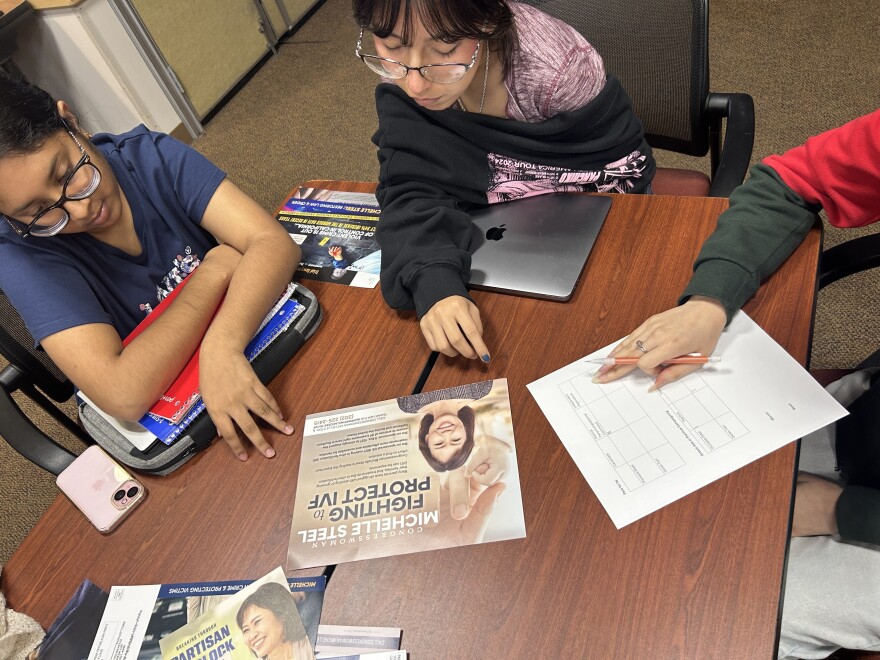This story is free to read because readers choose to support LAist. If you find value in independent local reporting, make a donation to power our newsroom today.
How to decode those political mailers clogging up your mailbox

A political science class at Fullerton College is sorting through campaign mailers to learn how to decode attack ads and who pays for them, and to understand how candidates try to sway voters. There are some lessons for the rest of us, too.
The assignment
In Jodi Balma's political science class recently, students broke into groups with piles of mailers sent out in the 45th Congressional district, where incumbent Republican Michelle Steel is facing off against Democrat Derek Tran. Students tallied up the negative and positive ads, analyzed the colors and messaging, and noted who paid for them.
What's the point?
Balma said learning how to "diagnose" campaign ads is a skill students can take throughout their voting life.
"When you actually critically look at it in a classroom, you get a very different perspective than when it's in your mailbox," Balma said. "And so teaching that skill stays with the students forever."
A few tips about campaign mailers:
- Generally, political ads have to disclose who paid for them. California's Fair Political Practices Committee (FPPC) has a handy fact sheet that lays out the basic rules.
- If you think an ad violates the rules, you can upload a photo of it or send a link to the FPPC's enforcement division and they'll review it.
- Voting early can help slow the flood of campaign ads to your mailbox. Sophisticated campaigns tailor their mailers to people they think they can sway.
Still working your way through the ballot? Head over to LAist.com/Vote for a guide to help you fill out your ballot.
We don't do endorsements. But we do help you break down the races, measures and issues that impact you most of all.
-
The maritime fire killed 34 people near Santa Cruz Island in 2019.
-
The action by authorities began about nine hours after the initial order to disperse was issued around 6:15 p.m. Wednesday. Shortly after 5 a.m. the area was cleared, with just a small amount of protesters remaining.
-
The project will rename most of the terminals and all of the gates with the goal of world-class signage that leans into psychology.
-
A new trend in travel focuses on disconnecting from modern life and reconnecting with oneself in nature. It's called a "quiet vacation."
-
On campus, many students found USC's reversal to be puzzling.
-
The highly anticipated airport service likely won’t open until October 2025.
















